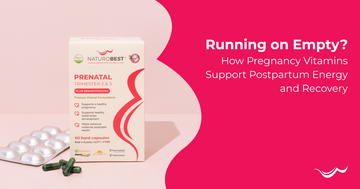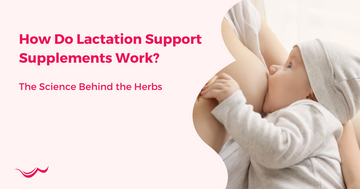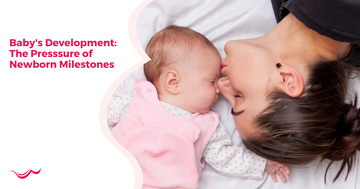
High Copper Levels and Their Role In Postnatal Depression
Is there a link between high copper/low zinc levels and postnatal depression and anxiety?
There appears to be a link between copper and anxiety. This study found an increased level of copper and decreased zinc levels in people with anxiety. After treatment with zinc and antioxidant supplementation, their symptoms improved significantly.
This outlines the important between the balance of zinc and copper in the body. Zinc and copper are both essential nutrients for different reasons. Zinc is needed for many processes in your body to function optimally. Zinc deficiency can lead to symptoms such as anxiety, fatigue and poor wound healing amongst others.
Pregnancy and breastfeeding can affect oestrogen levels. The postnatal period can also differ. Treatment protocols are important for each of these phases.
Serum copper levels and copper in the blood needs to be balanced. Low zinc levels are not ideal for health outcomes. Zinc citrate is a good form of zinc.
High copper levels and high dose zinc supplementation can be dangerous. It is recommended that you consult your Naturopath on dosing correctly.
Copper is needed for assistance in your energy production pathways, iron usage and tissue production. Copper also has a role in nervous system regulation and brain chemical production. Copper in excess can be harmful to the body.
Copper toxicity can contribute to symptoms such as anaemia, dementia, diarrhoea, fever and inflammation. Excess copper in pregnancy can potentially increase the risk of growth restriction, pre-eclampsia and neurological conditions.
There are certain genetic disorders that can lead to zinc deficiency. Pyrrole Disorder is a genetic disorder that can lead to a deficiency in zinc and B6. Pyrrole Disorder occurs where the production of pyrroles is too high.
High levels of pyrroles can be detected with urine testing for a diagnosis alongside clinical assessment. Pyrrole disorder has many different symptoms with the zinc deficiency. Some symptoms may include poor dream recall, white spots on nails, low morning appetite and stretch marks.
Other symptoms can be paleness, digestive issues and skin issues. Pyrrole disorder can contribute to mood issues, sensitivity to noise/light and dramatic behaviours.
Zinc is one of the most important minerals during pregnancy and breastfeeding. Aside from the importance of zinc in tissue repair (stretch marks, perineal tears and cracked nipples). Evidence over the years has indicated it may be an essential nutrient for our mental health.
I saw great results in my clinic using zinc supplementation as part of a treatment protocol for anxiety and depression. This is not surprising considering zinc is required for serotonin and GABA synthesis (happy, calming brain chemicals).
This systematic review found evidence to suggest potential benefits in zinc supplementation for depression.
Interestingly, this study found a 24% lower serum zinc level on the 3rd day postpartum. A day which is known by health professionals as commonly known as "third-day blues" day.
Copper is an antagonist of zinc
Copper is an antagonist of zinc and vice versa, zinc antagonises copper. Therefore, the naturopathic treatment for high copper levels is high dose zinc supplementation.
Copper and zinc compete for absorption. If you are supplementing with either of them you can't take them at the same time. High dose zinc supplementation can help to balance out high levels of copper in the body.
Some people may have high copper levels for different reasons. Some people can have high copper levels from the water they drink (can be in pipes).
Copper levels in the blood can also be increased by other factors. Liver disease or hemochromatosis (a condition where your body absorbs too much iron) can increase copper levels in the blood. Having an over-active thyroid can increase copper levels in the blood.
Symptoms of copper deficiency may include anaemia, low white blood cells (neutropenia), osteoporosis, paleness and hair that is losing it's colour. Symptoms of copper toxicity can include abdominal pain, diarrhoea and vomiting. Other severe toxicity symptoms can include heart and kidney failure, liver damage, brain conditions and even death.
Wilson's disease is a genetic disorder which can lead to high copper levels. Symptoms of Wilson's disease may include anaemia, low white blood cell count, abdominal pain and dark urine. Other symptoms may include pale stools, low appetite and jaundice.
People with Wilson's disease may display Kayser-Fraser rings which are brown rings around the eye. Wilson's disease may also contribute to many mental illnesses.
Elevated levels of copper in the blood may be of concern during the pre and postnatal period.
Copper rises naturally during pregnancy as the oestrogen levels rise. This study found an association between higher serum copper levels and postnatal depression.
Supplementation in pregnancy
More research is clearly warranted in this area. It is a good idea to speak to your health practitioner about supplementation during pregnancy and breastfeeding.
For these reasons, none of the prenatal vitamins in the NaturoBest range contain copper. However, they do contain a highly bioavailable form of zinc, zinc citrate.




